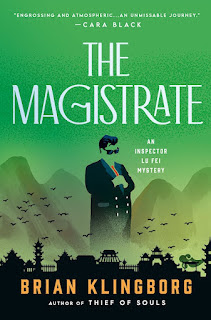 Adam Mitzner is the acclaimed Amazon Charts bestselling author of Dead Certain, Never Goodbye, and The Best Friend in the Broden Legal series as well as the stand-alone thrillers A Matter of Will, A Conflict of Interest, A Case of Redemption, Losing Faith, The Girl from Home, and The Perfect Marriage. A practicing attorney in a Manhattan law firm, he and his family live in New York City.
Adam Mitzner is the acclaimed Amazon Charts bestselling author of Dead Certain, Never Goodbye, and The Best Friend in the Broden Legal series as well as the stand-alone thrillers A Matter of Will, A Conflict of Interest, A Case of Redemption, Losing Faith, The Girl from Home, and The Perfect Marriage. A practicing attorney in a Manhattan law firm, he and his family live in New York City.
Mitzner's new novel is Love Betrayal Murder.
Recently I asked the author about what he was reading. Mitzner's reply:
Visit Adam Mitzner's website.I recently returned from vacation and devoured Julia Bartz’s The Writing Retreat, which struck me as a cross between Steven King’s Misery and Donna Tartt’s A Secret History, which are two of my favorites. A must read if you enjoy writing and having the bejeezus scared out of you.
Megan Abbott is one of the few authors that I love so much that I calendar when her next book comes out. Luckily for me, that was this week. I’m saving Beware the Woman for the weekend, though, because I know that if I start on publication date, I’ll be done the next day.
The Page 69 Test: A Conflict of Interest.
My Book, The Movie: A Conflict of Interest.
The Page 69 Test: A Case of Redemption.
My Book, The Movie: A Case of Redemption.
The Page 69 Test: Losing Faith.
My Book, The Movie: Losing Faith.
The Page 69 Test: A Matter of Will.
My Book, the Movie: A Matter of Will.
My Book, The Movie: The Perfect Marriage.
The Page 69 Test: The Perfect Marriage.
Q&A with Adam Mitzner.
--Marshal Zeringue
















